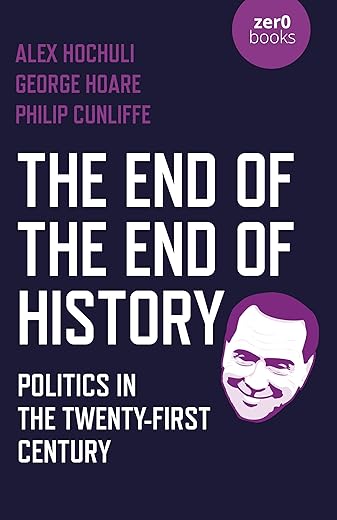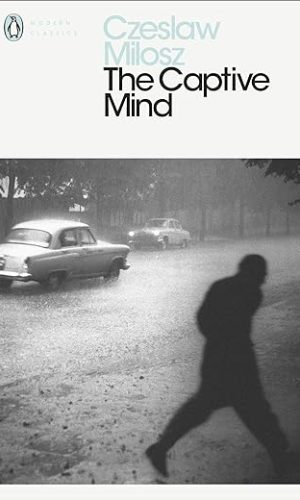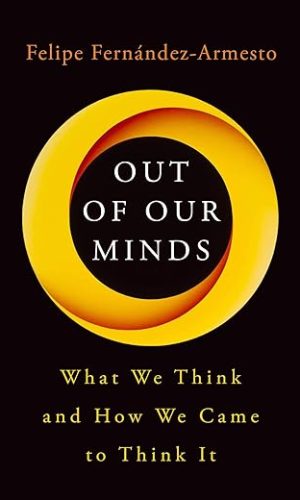The End of the End of History; Politics in the Twenty-First Century
£10.70£12.30 (-13%)
‘It’s been a long time since a text was so useful in helping me think through our present moment and my role within it. The End of The End of History is a clear, powerful and panoramic analysis of our world at the dawn of the 2020s.’ Vincent Bevins, author, The Jakarta Method
The End of History is over. The idea that Western liberal democracy was the final form of human government has been exposed as bluster: the old order is crumbling before our eyes. Angry anti-politics have arisen to threaten political establishments across the world. Elites have fallen into hysteria, blaming voters, populism, Putin, Facebook anyone but themselves. They are suffering from Neoliberal Order Breakdown Syndrome. Emerging from four years of interviews and debates on the popular global politics podcast Aufhebunga Bunga, The End of the End of History examines how the political consequences of the 2008 financial crisis have come home to roost. If Trump and Brexit shattered the liberal-democratic consensus in 2016, then the global pandemic of 2020 put a final end to the End of History. Politics is back, but its stranger than ever.
Read more
Additional information
| Publisher | Zero Books (25 Jun. 2021) |
|---|---|
| Language | English |
| Paperback | 208 pages |
| ISBN-10 | 1789045231 |
| ISBN-13 | 978-1789045239 |
| Dimensions | 13.89 x 1.17 x 21.34 cm |










by Charles Charles Charles
I should preface my review with the information that I am a dedicated listener to AufheBunga Bunga, and as such went into this text familiar with a lot of the ideas discussed.
The book feels like an effective distillation of many of the themes touched on in the podcast, and as such I would imagine that someone coming in blind would find the text very thought-provoking.
For my part I certainly enjoyed the book; it presents its arguments in a concise and often quite amusing way, and flew by in a few hours. I particularly enjoyed the sections on Berlusconi and the nature of corruption as a political weapon.
Where I would criticise the text relates mostly to its rather broad and polemical nature; it leans heavily in parts towards knocking chunks out of the ghastly pathologies of the PMC and modern left, which while justified, feels more like an exorcisation of frustration than a thorough analysis. Broad tropes (for example regarding Johnson’s 2019 election), while broadly indicative, seemed to be taken wholesale to advance the argument without interrogation or a sense of subtlety. There are also what feels like some strange omissions, including discussion of China’s socioeconomic models and what influence they are likely to bear on future ideologies.
Despite my reservations, I am very likely to recommend this book. It presents a prescient diagnosis of (particularly western) politics in the current age and feels like a potent guide to how the coming decade will shake out.
by Utter
Reflecting back on the period from the collapse of the Soviet Union, characterised by Francis Fukuyama as The End of History, the Bungas map out how that era saw the hollowing out of traditional left and right politics, their replacement with forms of ‘anti-politics’, both technocratic and populist, and identify trends that might lead to the renewal of grass roots politics at the End of the End of History. A good overall assessment of the past 30 years and a useful primer for those wanting to follow the podcasts.
by Leigh Phillips
The day I picked this up, I thought I’d start the day with a read of the first chapter or so, and then get on with work. But instead I ended up reading the whole thing in one day. Absolutely cracking analysis. Without exaggeration, one of the best left books I’ve read in years.
For the political centre, the last decade has been an inexplicable nightmare with populist right and left forces confronting them amid a widespread loss of faith in the establishment. Most of the explanations of the phenomenon, from Trump and Sanders to Brexit and Corbyn, are partial at best and self-serving at worst. There is very little that ties it all together, and still less that goes beyond the Anglosphere.
The authors for the first time take a truly global look, bouncing from the Italy’s Berlusconi, Five Star Movement and Northern League to the ebbing of Latin America’s Pink Tide, from the disappointments of Podemos in Spain to the betrayal of Syriza in Greece, from the Arab Spring and eastern Europe’s Colour Revolutions to the murderous end-games of Syria and Ukraine. Building on the key insights of the theorists of ‘post-politics’—sociologists Colin Crouch and Peter Mair, as well as the widely misunderstood Hegelian prescience of Francis Fukuyama, they unpick in detail the pathologies of the current left, right and centre in order to deliver a comprehensive theoretical, eminently readable explanation of the state we’re in, and even offer all-too-feasible predictions of what is likely to come next. It also contains moments of true wit, and is just an enjoyable breeze of a read—the cheek of their wry Aufhebunga Bunga podcast put to page.
Everyone on the left must read this, especially amidst the persistent refusal to face up to its many, punishing defeats of the last 20 (40?) years. It may sting a bit while reading, but the book just brings absolutely everything together. It’s a genuine marvel of a work of political theory.
by Richard McCulloch
Politics is back, but bloody hell, it sure is a mess! For those of us on the left who had spent years dreaming about the breakdown of neoliberal order, I think it’s safe to say not many of us expected its gradual demise to be quite so bleak, contradictory, and just plain weird.
The End of the End of History provides an insightful and highly readable look at the nature of political change since the end of the Cold War. It explains what exactly is new about contemporary politics, and what the implications of those developments are for political change, both now and in the future.
The analysis of Italy, and Berlusconi as the archetypal politician of our age, is especially compelling. I also loved the discussion of anti-politics, which does a superb job of explaining why so many seemingly radical (perhaps even revolutionary) global political movements over the past decade ultimately failed to bring about meaningful change.
Having listened to the authors develop some of these arguments on their equally superb podcast (Aufhebunga Bunga) over the last three years, it’s terrific to finally see all their key ideas available here in one place. I’m confident I’ll be returning to this book again and again over the coming years.